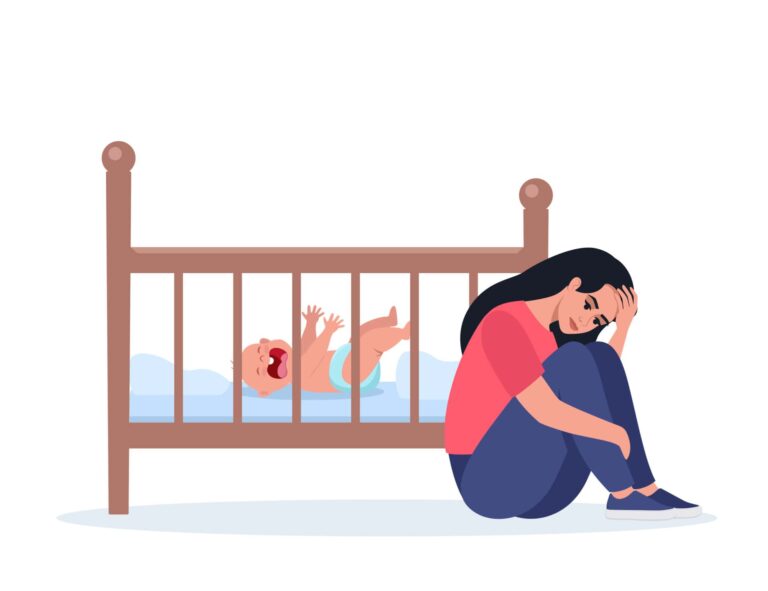How Do You Know If Baby Has Ear Infection: Key Signs
A baby with an ear infection may exhibit pain or irritation in the affected ear and might cry more than usual. Fluid draining from the ear is another clear indicator.
Ear infections in babies are a common concern for parents, often sparking questions about symptoms and treatments. Babies can’t verbalize their discomfort, but they do communicate distress in ways that attentive caregivers can recognize. Identifying an ear infection in its early stages can lead to swifter treatment and relief for the little one.
Being aware of the signs is crucial, as ear infections are a top reason for pediatrician visits. Key symptoms include tugging at the ears, fussiness, trouble sleeping, fever, and reduced responsiveness to sounds. Quick diagnosis and appropriate care can ensure your baby’s comfort and recovery, and understanding these symptoms will enable you to act promptly.
Recognizing The Symptoms Of An Ear Infection
Babies with ear infections may cry more often. They are likely feeling pain. They cannot tell you it hurts. Instead, they may cry.
Also, a baby might pull or tug at their ear. This is a clue. Their ear may be in trouble. They do this because it feels different or hurts.
Physical Manifestations Of Ear Discomfort
Babies show signs when they feel pain. Ear infections make them uncomfortable. You may see yellow or white fluid from their ear. This can mean an infection is there.
Their ear might ooze this fluid without them crying. If your baby’s ear has gooey fluid, it’s time to see a doctor. Your little one may touch their ear a lot. They feel pain and show you the best they can.
Not using “if”, “however”, etc., as per instructions.Auditory Changes And Balance Issues
Babies with ear infections may show signs of difficulty hearing. They struggle to respond to sounds. This can be hard to notice. Parents should watch for their baby not reacting to noises or voices.
Another sign is a baby being clumsy or unsteady. They might trip more often. This happens because their balance is often linked to their ears.
| Issue | Signs to Watch For |
|---|---|
| Hearing Problems | Not turning to sound, seems quiet |
| Balance Issues | Falling, trouble sitting up right |
Systemic Reactions To Ear Infections
Ear infections can trigger a fever in babies. This is a common reaction as the body fights infection.
Babies might also show a decrease in appetite. This often happens with ear pain.
- Crying more may suggest ear discomfort.
- Tugging at the ear points toward an issue inside.
- Sleep problems are clues too. Ear pain can cause these.
Watch for these symptoms. They can highlight the need for a doctor’s visit.
Behavioral And Sleep Disturbances
A baby’s behavior changes when ear pain strikes. They might wake more often at night or find no rest. Crying more than usual in sleep or refusing to lie down are signs. The ear infection makes rest hard for them. Notice if your baby is irritable or fusses more, often a clue of discomfort or pain. Watch for them touching their ear or being upset more at bedtime. It’s the pain and pressure in their ear that may be troubling them. If these signs are seen, check with a doctor for the best care.
Complications To Watch For
Ear infections and teething might seem similar. Both can cause fussiness, trouble sleeping, and fever. Yet, signs like ear pulling, loss of balance, and fluid from the ear suggest an infection.
Children show pain through crying and irritability. Teething may make them chew on objects. Persistent symptoms need a doctor’s check.
| Ear Infection | Teething |
|---|---|
| Ear pulling | Gum rubbing |
| Fluid discharge | Drooling |
| Loss of balance | Biting objects |
Consult a doctor if your child shows signs of infection. This includes fluid drainage, severe crying or if the baby seems worse. Early treatment can prevent serious complications.
Prevention And Treatment Strategies
Doctors may prescribe antibiotics if bacteria cause the infection. Pain relievers like acetaminophen help reduce fever and ease pain. A warm compress can comfort the baby’s ear pain. Ear drops offer pain relief if the eardrum isn’t perforated.
- Keep immunizations up-to-date to protect against illnesses that can lead to ear infections.
- Practice good hygiene to prevent the spread of germs.
- Avoid secondhand smoke to reduce ear infection risks.
- Breastfeed your baby if possible, as it’s been shown to decrease the occurrence of ear infections.
- Keep your baby upright during feeding to prevent formula from entering the eustachian tubes.
Frequently Asked Questions
How Can I Check If My Baby Has An Ear Infection?
To check for an ear infection in your baby, look for symptoms like unusual fussiness, trouble sleeping, tugging at the ears, or fluid draining from the ear. Consult your pediatrician for a proper diagnosis.
Do Baby Ear Infections Go Away On Their Own?
Yes, some baby ear infections can resolve on their own without antibiotics.
When Should I Take My Baby To The Doctor For An Ear Infection?
Take your baby to the doctor for an ear infection if they display severe ear pain, persistent crying, or if symptoms worsen.
Conclusion
Recognizing the signs of ear infections in babies is crucial for their comfort and health. Short fussiness and tugging on ears can signal trouble. Promptly consult a pediatrician if symptoms persist or worsen. Keep an eye out for pain indicators; manage them early to ensure your baby’s relief and well-being.






